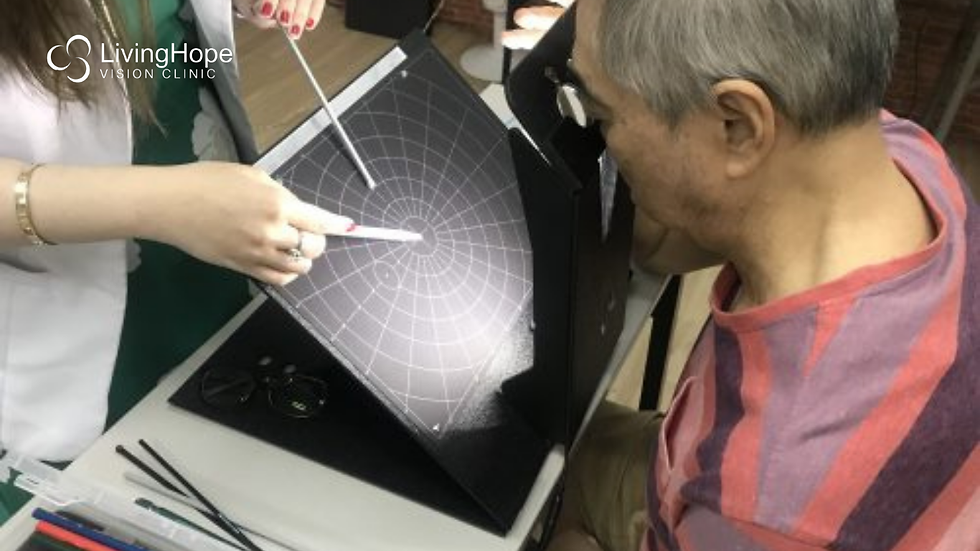Understanding Concussions: Signs, Symptoms, and Why Early Care Is Critical
- LH Manage
- Sep 9, 2025
- 2 min read
The severity of concussion can range from mild to severe, but early intervention is crucial for proper recovery and prevent long-term complications to your overall health - including your vision. Many people don’t realize that cognitive and vision problems are a common yet often overlooked symptom of concussions. At LivingHope Vision Clinic, we emphasize the importance of early detection and specialized care to support full recovery.

Signs and Symptoms of a Concussion
A concussion can cause a wide range of symptoms, including:
Headaches
Nausea or vomiting
Dizziness and balance issues
Confusion or difficulty concentrating
Blurry or double vision
Sensitivity to light
Difficulty tracking objects with the eye
Difficulty with memory, attention, and processing speed
Anxiety, depression, and emotional instability.
If you or a loved one experiences any of these symptoms following a head injury, seeking prompt medical attention is essential.
How Concussions Affect the Brain and Vision
A concussion disrupts normal brain function, which can lead to complications in various systems—including vision processing. Since the brain and eyes work together, any disruption can result in visual disturbances such as:
Difficulty focusing
Eye strain
Trouble reading or tracking movement
Increased sensitivity to light
Poor depth perception
Ignoring these symptoms can prolong recovery and affect daily activities like reading, driving, and working.
Why Early Intervention Matters
Early intervention for concussions is crucial to prevent secondary injury, speed up recovery, and reduce long-term complications.
The brain is highly vulnerable after a concussion, and a second injury before full healing can lead to severe, even fatal, consequences. Prompt treatment helps manage symptoms like headaches, dizziness, and vision problems, reducing the risk of prolonged post-concussion syndrome.
Without early care, patients may face persistent cognitive, emotional, and vision-related issues, including difficulty with memory, focus, and light sensitivity. Timely neuro-vision rehabilitation, including vision therapy and therapeutic lenses, can significantly improve visual function and overall recovery.
Additionally, early management supports a safe return to normal activities, preventing setbacks and promoting long-term brain health.
At LivingHope Vision Clinic, we specialize in detecting and managing post-concussion vision issues to help patients recover efficiently.

Neuro-Vision Rehabilitation at LivingHope Vision Clinic
Early diagnosis of concussion-related vision problems is essential for effective treatment. We offer neuro-vision rehabilitation to help patients regain proper visual function through:
Targeted Vision Therapy: Customized exercises to improve eye coordination and tracking.
Light Sensitivity and Pain Management: Solutions such as precision tinted lenses by Opticalm and specialized Syntonic light therapy as well as known as Photobiomodulation therapy to reduce visual discomfort.
Eye-Focusing & Movement Training: Techniques to enhance visual processing and depth perception.
Visual-Perceptual Skill Development: Improves the brain’s ability to process visual information by enhancing skills like visual memory, visual closure, and spatial awareness. This helps patients recognize objects, remember what they see, and better understand depth and directions.
Personalized Recovery Plans: Comprehensive care tailored to your specific symptoms and needs.
If you or a loved one has experienced a concussion and is struggling with vision problems, don’t wait. Early intervention with vision therapy, therapeutic glasses, and light management is key to recovery.
To start your journey toward healing
Best Vision Therapy Clinic
Best Vision Therapist in Hamilton




Comments